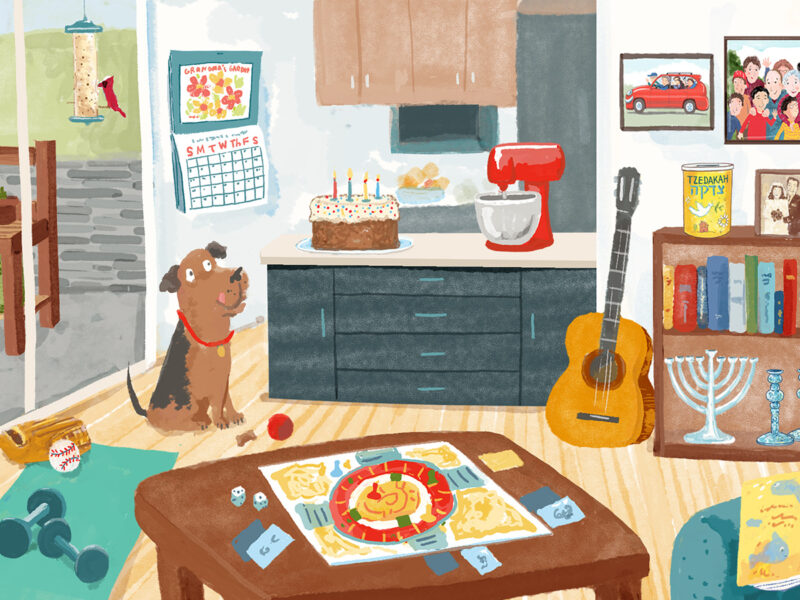My father was known as Louis Glick in English and Laibl Glick in Yiddish. He was born around 1900 in Meziboz in the Russian Ukraine. When “Fiddler on the Roof ” came out, he remarked that his shtetl, where the Baal Shem Tov developed Hassidism, could well have been the model for the movie.
During the first years of the Russian Revolution, the Czarist Whites and the Communist Reds fought over Meziboz. One day the Red Army would enter the town, hand my father a rifle and order him to fight for the Communists. A few days later the White Army would enter, hand him a rifle and order him to fight for the czar. A few days after that the Cossacks would sweep in, each brandishing a sword in one hand and a rifle in the other while guiding their horses with their knees. The Cossacks were not interested in Russian politics; they were interested in killing Jews.
During one raid a Cossack fired his rifle at my father. But because his horse stumbled at the last moment, the bullet hit his leg instead of his head. Thinking my father was dead, the Cossack turned his attention to another Jew, whom he killed. Then and there my father concluded that no matter who ruled Russia after the revolution, the Jews would not be safe. So with no papers or passport he fled to Belgium and worked as a longshoreman on the Antwerp docks until he was able to emigrate to America in 1920.
He settled in Brooklyn. Following are sayings I heard him repeat many times during his life. Where necessary, I have translated them from the Yiddish.
A day ambles, a year runs.
Rich or poor, it’s good to have money.
Yiddish is an exciting language, not a jargonized dialect.
If we knew exactly when we were going to die, we would immediately cease to function.
If you grow up speaking two languages, learning a third and fourth one is easy.
If you don’t grow older– it’s not good.
Buy the best-made things that you can afford. They last and in the long run are cheaper.
The money you lose can be recouped. The courage you lose cannot.
Better a has-been than a never-was.
When comparing your lot in life, look to those below you, not to those above you.
Giving charity is the highest virtue. That’s why in Hebrew the words for righteous and charity come from the same root.
Beware of learned fools.
Treat everyone, especially young children, with dignity and respect.
The moment you marry your wife, she becomes the most important person in your life.
To a customer who complained incessantly: “You will do me a great honor if you will allow me to introduce you to a competitor whose butcher shop is just a few blocks away."
Any virtue carried to an extreme becomes a vice.
Working with your head is harder than working with your hands.
People are experts on everyone but themselves.
When going to a party, wear a jacket and a tie. If you find that you are overdressed, you can remove them. The reverse is not possible
If you live long enough you will know everything; the trouble is that most people don’t live long enough.
But remember that knowledge and wisdom are not synonyms.
If you can’t say anything nice about someone, say nothing.
To avoid procrastination, follow the Yiddish dictum “gezogt iz geton” (to say is to do).
Pay your bills upon receipt.
Learn as much as you can. You never know when the knowledge will come in handy.




